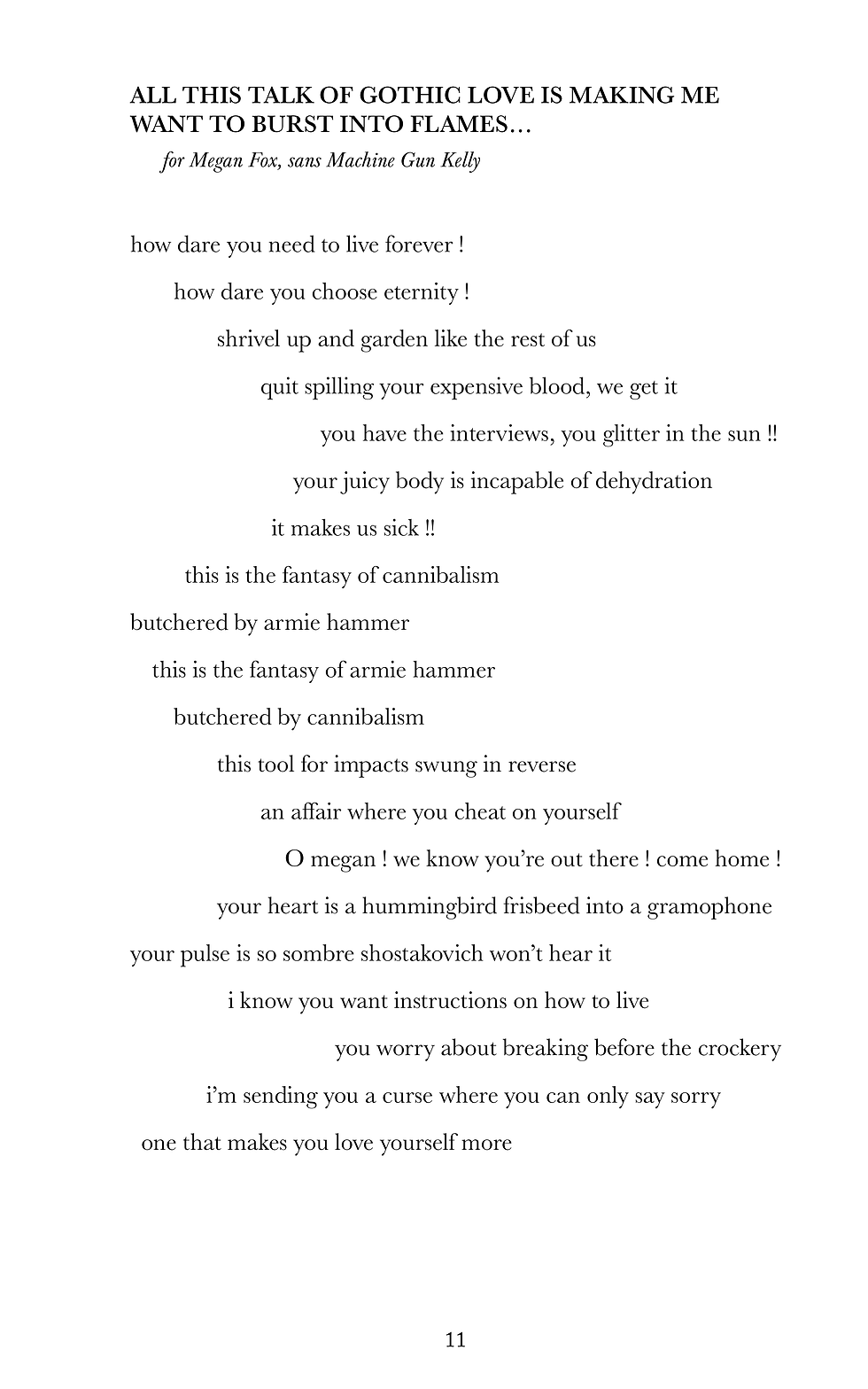There is no single theme that binds together Ergastulum’s collaged poems, essay-fragments, diary entries, and dream sequences. An experiment in longing for collective duration, yearning for touch in an embrace between friends, and the desire for meaningful social change, Ergastulum: Vignettes of Lost Time is Azad Ashim Sharma's first full-length collection of hybrid writing. As the product of a reading practice and an attempt at reclaiming embodiment from the atomising of time in an increasingly digital workplace, Ergastulum formed during the pandemic whilst reading Byung Chul-Han, Lewis R. Gordon, Fred Moten, Jacques Derrida, Nathaniel Mackey, and Karen Barad. This is auto-theory as lyric amalgam; a collection of thresholds along the desire lines of otherhood; a prayer against the onslaught of capital's deracination of time itself; an incantation or spell cast out by turning the page into the open space of streets populated by protest.
PRAISE FOR ERGASTULUM:
Azad Ashim Sharma offers us something very unique in Ergastulum. The torrent of his disciplined yet melodic poetry does not only travel with forceful grace. Rather, his aesthetic precision and uncompromising craftsmanship cut through with elegantly disorienting eloquence: love, anger, sadness, substance abuse, race, labor, and revolt, only to unbind and bind them tightly in a politics of the poetic that weaves through London, Palestine, and Kashmir. Passionate, brilliant, lyrical, and affective, Ergastulum will be known for having established Azad as undoubtedly one of the most complex and talented poets of his generation.
— Stephen Sheehi, Camera Palaestina: Photography and The Displaced Histories of Palestine
Ergastulum may be named for a type of dungeon, but the bars of print on Azad Ashim Sharma’s pages are placed to let in a lot of light. Held, but not contained, by the bonds of coronavirus sociality, Azad gives us a poetics of touch as luscious as an apricot, as frustrating as a trip to a closed zoo, as complex as quantum entanglement, and as vitally common as sweat. What names might this lit writing call to mind? Nuar Alsadir, Holly Pester, Christine Brooke-Rose, Jean-Luc Godard…philosophy, precarity, allusion and absurdity…yes, but also the release of dance and the struggle of revolution; Abt Vogler, Robert Browning’s organist, improvising till he touches on the C major of this life. To assent to ascent, drag the scentless, traverse the senseless: Azad really does sing the body electric, decolonizing the refuge we find in the -ing, in the Verb.
— Vahni (Anthony Ezekiel) Capildeo, Like a Tree Walking
Breaking away from itself ‘as soon as representation [is] afoot’, Ergastulum is writing as afference, theory as incantation, lyric as charnel ground. These lines are virtuosic and macaronic, elaborating resistance within confinements of time that are conditionally funded or else endlessly applied for. Viscerally attuned to the touch of distance and the haptics of grammar, Ergastulum is a bibliomantic luminary – emptying itself out towards the hope of both ‘another confidant’ and the ‘global public’, which is to say, love.
— Daisy Lafarge, Life Without Air
Azad Ashim Sharma’s Ergastulum is the anahaptic diagnosis of these pandemic times: screens hum, containers buzz, and the world’s supplies chain the commons. Wrestling with the grammar of enemy territory and the constraints of the settler’s diction, Azad sings the constant unmaking of our asocial cohesion. Against a world where phenomena bury the lyric body, these poems are armed with guerrilla ontologistics: picking up, moving forth, and grasping back out. In anticipation of the fight back, Azad’s lines spit acts of recapture: weaving a poeisis from among the breaches of memory, holding down bays of relief for new modes of arrival, garnering strength to break back in and break shit back the fuck up. Lights out. It was in predictive predilection for the future acts of poetry that ‘we razed the containment and embraced the coming horizon.’ Finding each other in the dark, the colony is yet to crush this love.
— Ed Luker, Other Life
Lost time, no time, in search of lost time. Azad’s Ergastulum packs a punch worthy of Marcel Proust. Only this time there’s no time and the lack of meaning in the world is the result of living at work. Being thrown into a pit, like the slaves of old. The lack of contact. The sheer inhumanity of a world in which some humans can impose the destruction of life and world on time itself. ‘We are out of touch with time itself’, he tells us in the very first verses of this collection. But we also ‘syncopate together’, ‘maroon in nanoseconds’, and ‘rave-rub against each other’ until the spark is ignited. This is not just poetry, but lightning. And it is ready to set the world on fire. So that it can be reborn. Time, and time again. This is not just poetry, but lightning.
— Oscar Guardiola-Rivera, Night of the World 1
top of page
£4.99Price
Related Products
bottom of page
































